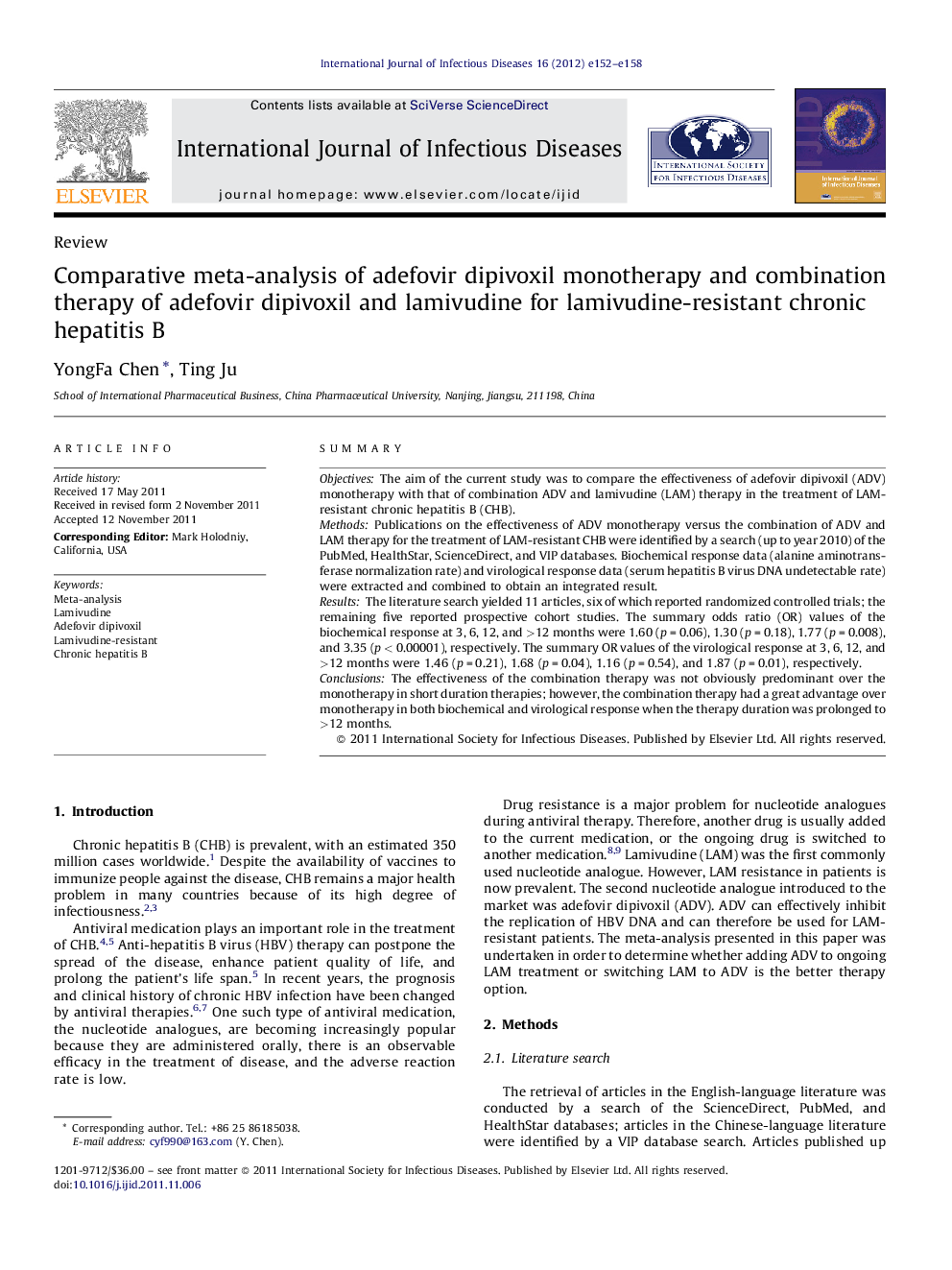| Article ID | Journal | Published Year | Pages | File Type |
|---|---|---|---|---|
| 3363179 | International Journal of Infectious Diseases | 2012 | 7 Pages |
SummaryObjectivesThe aim of the current study was to compare the effectiveness of adefovir dipivoxil (ADV) monotherapy with that of combination ADV and lamivudine (LAM) therapy in the treatment of LAM-resistant chronic hepatitis B (CHB).MethodsPublications on the effectiveness of ADV monotherapy versus the combination of ADV and LAM therapy for the treatment of LAM-resistant CHB were identified by a search (up to year 2010) of the PubMed, HealthStar, ScienceDirect, and VIP databases. Biochemical response data (alanine aminotransferase normalization rate) and virological response data (serum hepatitis B virus DNA undetectable rate) were extracted and combined to obtain an integrated result.ResultsThe literature search yielded 11 articles, six of which reported randomized controlled trials; the remaining five reported prospective cohort studies. The summary odds ratio (OR) values of the biochemical response at 3, 6, 12, and >12 months were 1.60 (p = 0.06), 1.30 (p = 0.18), 1.77 (p = 0.008), and 3.35 (p < 0.00001), respectively. The summary OR values of the virological response at 3, 6, 12, and >12 months were 1.46 (p = 0.21), 1.68 (p = 0.04), 1.16 (p = 0.54), and 1.87 (p = 0.01), respectively.ConclusionsThe effectiveness of the combination therapy was not obviously predominant over the monotherapy in short duration therapies; however, the combination therapy had a great advantage over monotherapy in both biochemical and virological response when the therapy duration was prolonged to >12 months.
